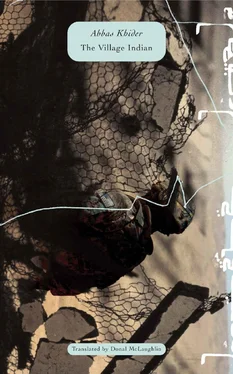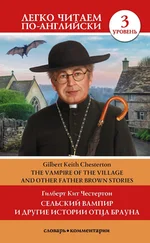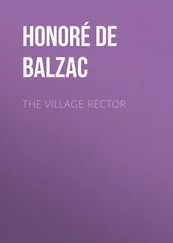I quickly forgot those people and tried to find new paths for myself in Amman. But there weren’t many. Working, reading and writing managed to soothe my longing and the need to meet other Iraqis died down. Thus, to some extent, I was able to avoid news from Iraq. For the same reason, I called my family just once a month. In the end, it also helped me to wander, alone, out into the Jordanian desert and to scream. Screaming is the best cure for emptiness but, sadly, an all-too-fleeting one. The emptiness on earth and in heaven weighed on you in Jordan too. Staying was not the best option. The next possibility for me was Libya. There you could at least feel free in the desert as it was so big. And so I bought a ticket and set out on my way without thinking about what I’d actually do there.
‘God, save me from empt-i-i-i-i-i-i-i-i-i-i-i-i-ness!’
In Libya, I decided to flee to the West again. Life in the Arabian Desert under another dictatorship — this time, African — was unbearable. I saw and experienced for myself just how terrible things were. The country consisted of a single man, or a single family, who held all the power and determined the fates of its people. It was a land so filled with the sand of brutality that even a camel would lose its bearings. It would take more than the patience of a camel to be able to bear all that. The patience I had, even — though that clearly wasn’t enough.
I no longer wished to stay there. Actually, I no longer wished to stay in any place where pictures of some president or other hung in the streets. The countries in which I was to land up in future I’d divided into two groups — where there were posters of their leaders, like in Libya, and where there weren’t. That’s the kind of place I wanted to go to. I’d always heard about how that kind of thing existed only in the West. So I began the first stage of my long journey to the western hemisphere.
We were three men who’d met in Benghazi — a Sudanese, a Libyan and an Iraqi. Izhaq, the Sudanese, wanted to get married, start a family and live in peace. Abu-Agela, the Libyan, wanted to know the mountains and snow and ‘a blonde wife, a house in the forest and as much money as possible’. I didn’t know what I wanted. Nothing more, perhaps, than to overcome my emptiness and to take myself as far away as possible from any danger.
Izhaq was our people-smuggler. He wasn’t a proper smuggler, of course, but a French teacher and a fisherman. ‘If I’d known my studies would only be worth the piece of paper my result was printed on,’ he’d once said, ‘I’d have become a fisherman far sooner.’ Because in Libya the level of interest in French was extremely low, he’d been working, since his arrival in Benghazi, as a fisherman on the boat of a Libyan businessman. ‘I don’t want to stay. This place is killing me,’ he said every time I met him.
Abu-Agela, who’d fled from his tribe, no longer wanted to be a grain of sand in the Sahara and laughed at by his tribe. One day, he’d gone with the other boys to the holy stone in the desert — where they met once a week at the campfire to sing and dance. ‘It’s a wonderful stone! It’s said that it was the very first stone and fell from the sky with Adam. It is big, white and shines in the night. Just imagine that — a white stone and the black skin of the boys in the yellow desert! And then dancing and shouting round the campfire to the wild beats of the drum beneath the black sky!’
That day, he didn’t go to the stone with the others. ‘I saw Ouarde. She lived up to her Arabic name — she was a real flower . She looked at me as if I were the most handsome boy in the world. I didn’t know Ouarde well but I knew she didn’t have a good reputation in the tribe. But she was pretty — very pretty. Everyone said she was doing it with the head of the tribe though he had two wives and eleven children. I was only thinking of having fun with her. But she seduced me. I followed her to a valley far from our village. We hid there and it happened. My first time! A month later, the head of the tribe came to me and said that Ouarde was pregnant. Was claiming that I was the father. I didn’t know what to say. When a woman speaks such nonsense, there’s nothing to say. All the men had rifles in their hands and were talking about honour. But I knew it was a trick and that the head of the tribe himself was behind it. I couldn’t possibly be the father. I’m not stupid. How was she supposed to have got pregnant? I’d only fucked her up the arse! But I had to marry her. There was no other option. Marry her or be shot. Two days after the wedding, I ran.’
Abu-Agela and I stood at the Mediterranean every day and he said the same thing every time: ‘It’s hard as hell to cross this sea.’
‘Look — this ship here? Where’s it off to? What do you think?’
‘Yes, look closely. Where to? Over there’s Italy and over there, Malta. And back there, Holland.’
‘But the police?’
Abu-Agela knew Izhaq and he joined us. We sat with our maps daily, planning our escape to Italy. The trip was to begin in Izhaq’s boat. We went to the harbour in the evening. It was Friday and, on public holidays, the town was like a desert. Hardly anyone in the streets or at the harbour. We got into the boat. From the sea, I looked back at Benghazi. Its lights disappeared slowly. Suddenly, it was no longer there.
The boat was drifting.
Though I was restless I fell asleep. When I woke up, I found Izhaq staring at me. ‘Man, you were asleep for six hours!’
Round us, a deathly hush, the only sound that of the waves splashing against our boat. Suddenly, Izhaq hissed, ‘There’s light over there!’
‘An Italian ship?’
‘I’ve no idea. I’m not a clairvoyant!’
‘Shit, it’s Libyan!’ said Izhaq.
We spent a few unbearable days in the Benghazi harbour prison. If it hadn’t been for Abu-Agela and his muscular body, who knows what might have happened! A cell reeking of damp and mould, more than twelve people squeezed in together. All with very special crimes to their names — murder, manslaughter, rape. . One of them, covered in tattoos, tried to hit on me and Izhaq. Abu-Agela flattened him, then planted himself in front of us like a giant. From then on, we were left in peace. They had their fun in the end, though. Found two other guys for their hot group-sex games. The pair seemed perfectly happy, so Abu-Agela held back and let them be.
In the end, the police magistrate believed our claim — that we had just wanted to go on a little boat trip round Benghazi. Nevertheless, we had to sign a bond that we would never hang around near the harbour. Izhaq lost his job. Following our release, he decided to go to South Africa, this time not by sea but on foot, across the desert. Also illegal, of course. Abu-Agela wanted to go to Tunisia and then onwards from there.
On the day of our release, I went to the beach in the evening and looked at the sky, the sea, the ships and the gulls. I closed my eyes and began to scream with all my heart and soul. I spread my arms like a pigeon would its wings and danced on the beach. Like a wave, or a pigeon that has just been killed. Like a raging camel. Whenever things went wrong, I danced and screamed. Though not exactly a good dancer, I danced with a passion. Like I was Zorba the Greek. I danced whenever I felt I had no paths, no dreams, no hope any more. Whenever emptiness engulfed the world round me. Afterwards, I felt free, new-born. Like a gull for which every route is open. Like an eagle floating in the sky. I danced on the beach of Benghazi, screaming. Then set out on my path home. Home? Where was that? A hole under the stairs of a building — ten square metres, maybe. The landlord allowed homeless people like me to live there for not much money. That night I slept well and woke up having decided to go to Tunisia with Abu-Agela.
Читать дальше












